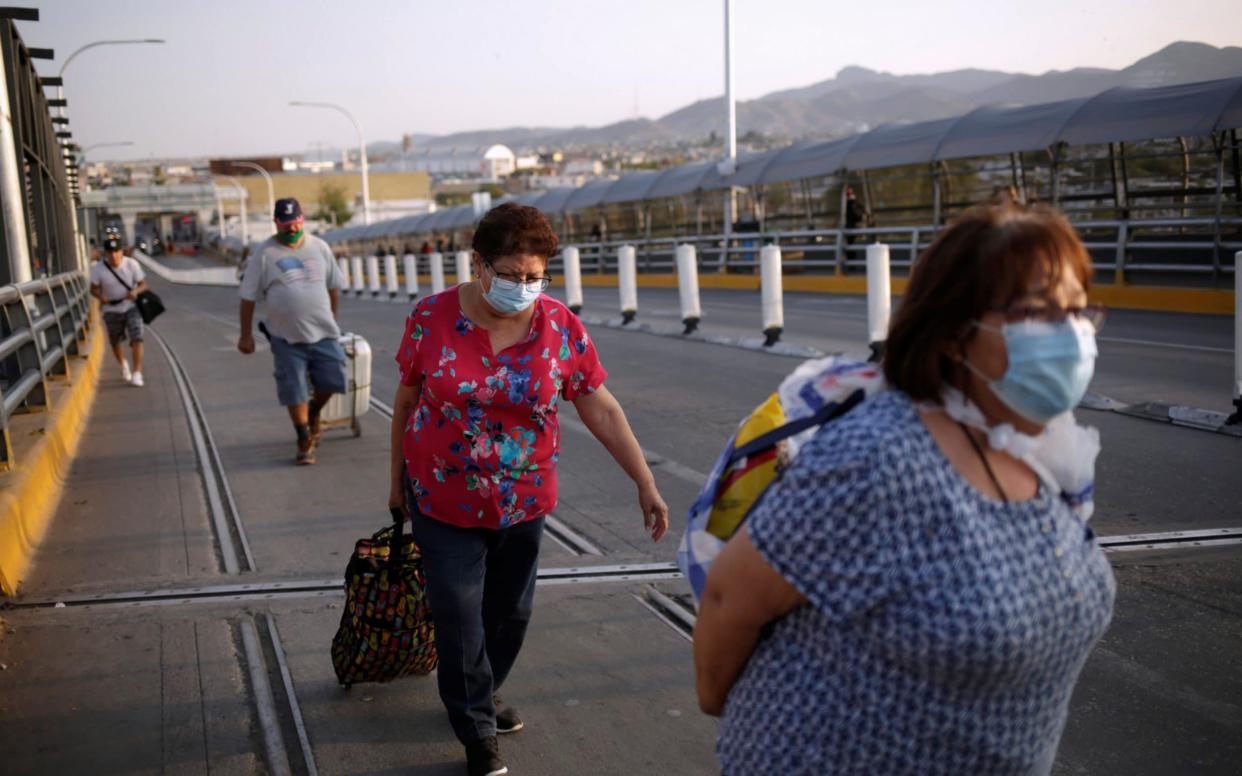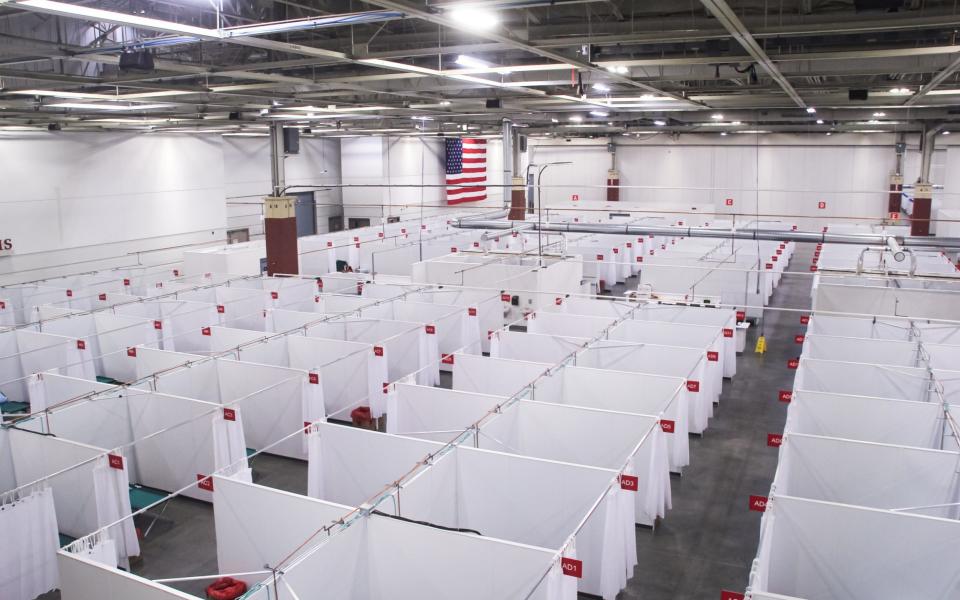Police knock doors in Texas quarantine drive as US heads for coronavirus third wave

Hit hard by coronavirus in July, the residents of Texas thought the worst was behind them. But with lockdown fatigue setting in, cases are once more surging in urban areas across the state.
One such hotspot is the city of El Paso, where officials have turned to drastic action to curb the spread of the virus.
This week, police officers have been dispatched to the homes of residents in the Texan city who have tested positive, to order them to quarantine for 14 days. Those who flout the order could find themselves brought before a judge or facing a $500 fine.
Some 41 US states have seen a rise in new cases over the last two weeks, with the number of new daily infections topping 60,000 on Thursday - the highest in more than two months.
As well as outbreaks in Texas and other western states, some of which have reached near record levels, severe and uncontrolled outbreaks have appeared in the Midwest of the country.
Dr Hector Ocaranza, from El Paso's public health authority, said the decision to use police officers to enforce quarantines was driven by public resistance to the city's contact tracing efforts.
In some cases, he said, people do not answer the phone to contact tracers because they do not recognise the number; in others because they do not want to quarantine.
Officials in the Texan city are taking drastic action to curb the spread, including sending police officers to homes with quarantine orders pic.twitter.com/PXf2NmLj7r
— Rozina Sabur (@RozinaSabur) October 16, 2020
"We're writing those [quarantine] orders almost every other day," he told The Telegraph. Those being handed the orders from health officials or police officers, he said, are often "surprised" to meet them on their doorstep - but the move is so far proving effective.
"They might not pick up the phone and answer it, but they answer the door. We have a positive reaction to that," he joked.
But behind the dark humour, Dr Ocaranza said the situation is "very, very concerning". The west Texan city has seen more than 3,300 cases in the last week alone, as well as a sharp increase in the number of hospitalisations.
This drive-through testing site said it’s struggling to keep up with demand pic.twitter.com/msy6zWe0xf
— Rozina Sabur (@RozinaSabur) October 16, 2020
At testing sites in El Paso, those lining up for a coronavirus test shared the personal tragedies behind those numbers.
"I've already known three people who have passed away [from Covid-19] who are close to me, it's taken a toll on us," said Yvette Alvarado, a 40-year-old dental assistant.
Ms Alvarado said she had been particularly shaken by the death of a former classmate, previously considering the virus to only be a significant threat to the elderly.
Yvette Alvarado describes the toll a new surge in coronavirus cases is taking in El Paso, which has emerged as a new hotspot as the US approaches a third wave of infections pic.twitter.com/Sbad3tnA3a
— Rozina Sabur (@RozinaSabur) October 16, 2020
"You don't think it's ever gonna hit you the way it has, by the time you know it, either you get sick or someone close to you does."
"I think people need to start taking it seriously," she added.
Another local waiting to be tested, Lilian, agreed. "People aren't being cautious at all. I'm a babysitter and the families [I work for] are out every weekend, going to bars and restaurants," she said.
The manager of the testing site, Eduardo Aguila, said he, like every other provider in the city, was "struggling" to meet the soaring demands for Covid-19 tests in the last two weeks. "There's been a significant increase, particularly among young people," he said.
The same trend is occurring in several other emerging hotspots in the US, with epidemiologists warning the country is heading toward a worrying new phase.

The first severe outbreak on the US east coast in March and April saw cases peak at 32,000 per day. A second wave hit the country’s Sun Belt Over the summer, with infection rates exceeding 67,000 per day by mid-July.
Now, with winter approaching, there are clear signs of a third - and potentially more severe - peak in infection rates. More than 36,000 Americans are hospitalised with the virus, and Covid-19 related deaths are once more on the rise in 14 states.
States like Montana, Minnesota and Wisconsin, which up until now had seen relatively few cases, are now seeing infections climb, putting their health care systems under strain.
With hospitals now in "crisis" according to officials in Wisconsin, the state has opened a 530-bed emergency field hospital to meet the surging demand. The facility, just outside Milwaukee, opened on Wednesday - the same day more than 1,000 people were hospitalised in the state for the first time.
Even New York, which after a devastating early outbreak had been held up as a model of containing the virus, has now identified red zones where infection rates are creeping back up.

It is unclear what is driving the recent spike in cases. Experts suggest that the cold weather, the reopening of schools and businesses, or simply the public letting its guard down, have all contributed to the increase.
Dr Anthony Fauci, a lead member of the White House coronavirus task force said he hoped the numbers “jolt the American public... because it’s on a trajectory of getting worse and worse.”.
But according to Dr Rajesh Nandy, an epidemiologist at the University of North Texas Health Science Center in Fort Worth, these "wave-like" patterns will keep emerging until a Covid-19 vaccine emerges.
Dr Nandy, who has been monitoring the outbreak in Texas, argued that the case numbers are driven by "cyclic behaviour", whereby falling case numbers cause public restrictions to be relaxed and the public to be less cautious, which then drives a rise in cases once more.
"It goes in cycles," he told The Telegraph. "I think we have to live with that pattern until there’s a vaccine or until we reach herd immunity - and we’re very far from that," he said.

